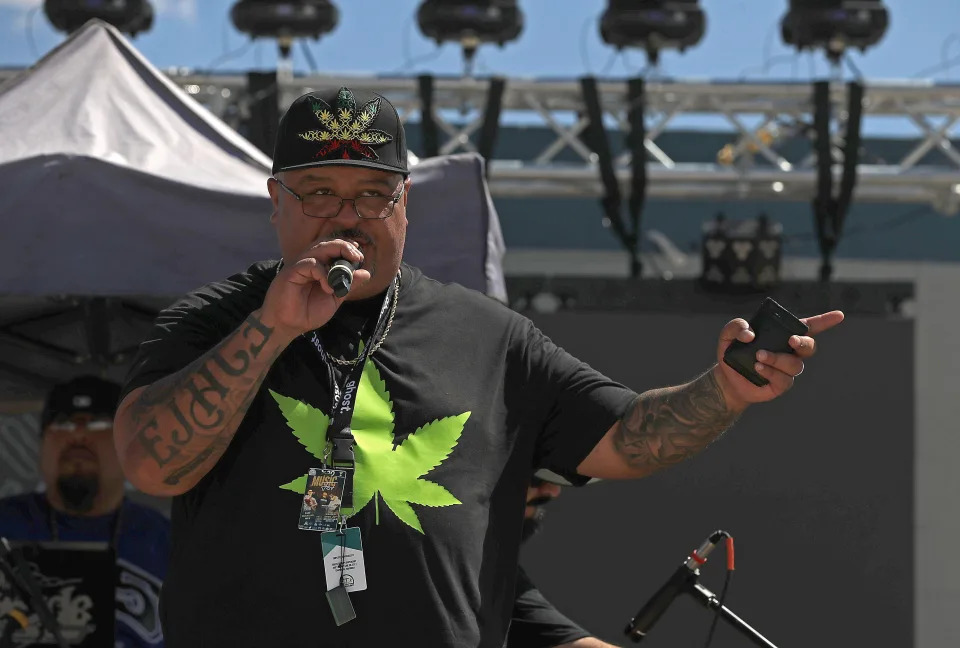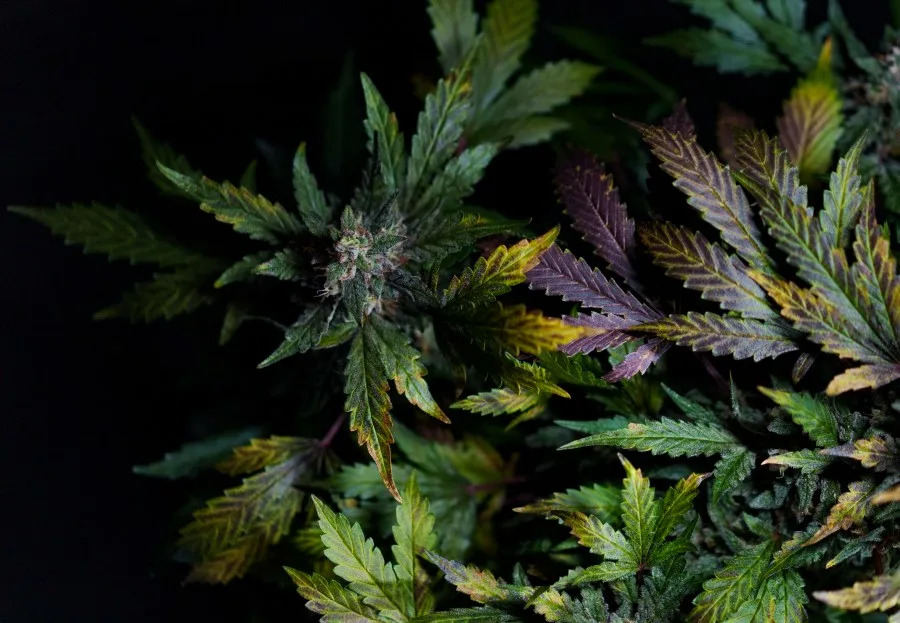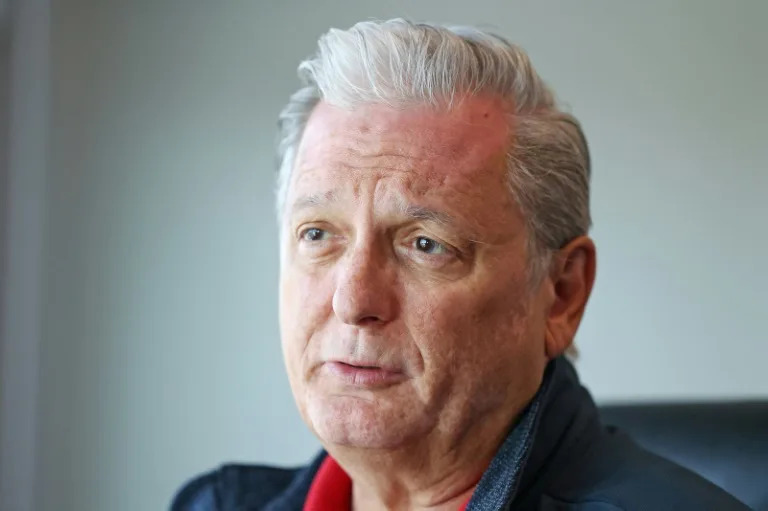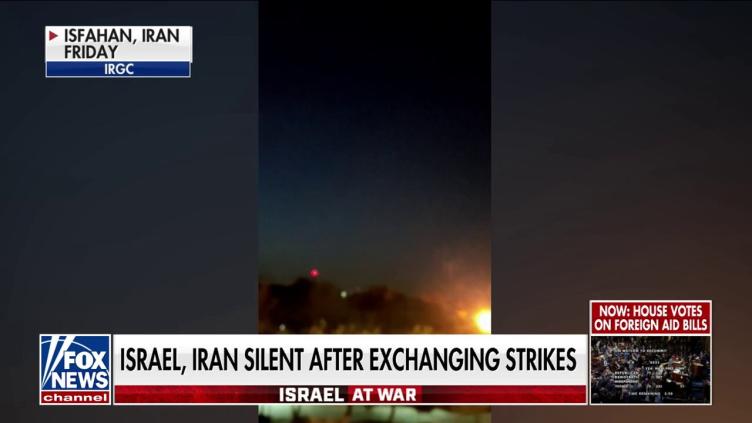Daniel Coates
Sun, April 21, 2024
On the unofficial holiday of 4/20, another dispensary opened its doors to new customers – part of the booming statewide cannabis industry.
Rebelle on Albany Street in Boston is the first dispensary to open in the South End neighborhood. The company produces its own marijuana products while also selling other brands as well.
Guillermo Erazo, assistant general manager of the store, told Boston 25 that their natural products focus on general wellness.
“We produce our own product,” said Erazo. “We cultivate our own flower. We cultivate our own edibles and concentrates as well too.”
Rebelle is now one of more than a dozen dispensaries across Boston that sell recreational marijuana.
Recreational marijuana was legalized in Massachusetts in 2016. The cannabis control commission reported roughly $1.5 billion in sales in 2023 as the industry grows statewide.
Erazo added, “We have a lot of consumers who came down that are more happy that it’s recreational, that we open up doors for consumers to get it the correct way.”
The growing industry is also opening new doors for local businesses.
Sam Burgess of Bootstrap Compost in Everett held a pop-up at the South End dispensary, saying his company can create a more sustainable marijuana industry.
“We can actually compost green material after the harvesting,” said Burgess. “We can create bioplastics and whatnot for better packaging. So, I think there’s a lot of room for improvement.”
While dozens trickled into the store, Erazo told Boston 25 he hopes cannabis will soon be totally destigmatized.
Citing some benefits, Erazo finished, “Lupis, muscle relaxation, or an increase in appetite too.”
Since retail stores opened in 2018, the cannabis control commission has reported roughly $6 billion in sales
4/20 is the busiest time of year for Florida’s medical marijuana dispensaries
Ivy Nyayieka, Tampa Bay Times
Sat, April 20, 2024

It’s April 20 (or 4/20) — the unofficial holiday celebrating marijuana.
And if history is any indicator, it’s a great day for sales at Florida’s medical pot dispensaries.
In the past two years, Floridians with medical marijuana cards bought more weed during the week of 4/20 than any other week of the year. That’s according to a Times analysis of cannabis dispensary data from the state’s Office of Medical Marijuana Use. (420 is slang for pot smoking; its origins are debated.)
Steve Mazeika, the vice president of communications at Verano, the parent company of cannabis dispensary chain Müv, called April 20 “the cannabis community’s biggest annual holiday.”
Cannabis market research firm BDSA, which is based in Colorado, said in an email that the higher sales are likely due to “the overall hype surrounding the holiday” as well as increased marketing that cannabis dispensaries do around this time of year. It said revenues reached $23.26 million in Florida on April 20 last year.
“Despite being a medical market, the use of cannabis in Florida for relaxation and recreation-adjacent purposes is significant,” said BDSA chief executive officer Roy Bingham.
Florida only allows weed use for those with medical marijuana cards. But voters in November will decide on a proposed constitutional amendment that would allow recreational marijuana for adults in the state.
In 2023, nearly 440 million mg of medical marijuana was dispensed during the week of April 20, a 31% increase compared to 2022, according to state data.
The state saw a 14% growth in the number of medical marijuana patients in that period.
Florida’s not alone. Other states, including Arkansas and Colorado, have in the past reported bumps in medical marijuana sales around April 20, according to news reports.
Corrie Boudreaux
Sun, April 21, 2024
Several hundred people gathered at an empty lot between two tiny strip malls along County Line Road in Chaparral, New Mexico, for a 420 celebration.
GT 420 Music Fest, organized by James and Christina Perez, owners of GT Dispensary in Chaparral, featured an all-day lineup of bands in English and Spanish and finished with an appearance by California hip-hop rap artist Lil Rob.

Hip-hop and rap artist Lil Rob entertain spectators on Saturday at the GT 420 Music Fest in Chaparral, New Mexico.
Though one myth has it that 420, 4/20 or 4:20 originates from a police code for marijuana, the true story is that a group of teenagers in 1970s California used “4:20” to allude to the time when they would meet after school to smoke. The term spread after it was used on a flyer distributed at a Grateful Dead concert in the early 90s, USA TODAY reported. Now, April 20 is known worldwide as a day to celebrate all things cannabis-related.
The dispensary owners wanted to give back to the community, so they decided to organize the free family-friendly event, they said.

James Perez, organizer of the GT 420 Music Fest in Chaparral, N.M., speaks to the crowd of spectators on April 20, 2024. The free event was organized by James and his wife, Christina Perez, owner of GT Dispensary, because they want to educate the public on the myriad uses of cannabis.
The introduction of New Mexico's cannabis industry to El Paso has facilitated easy access to legal cannabis, and dispensaries consistently attract a significant share of their customers from nearby El Paso.
James Perez uses it for medicinal purposes, but in the past, he had to travel from Chaparral to Las Cruces or Sunland Park to buy it. He and his wife decided to open their own dispensary in 2022 to provide marijuana for their community.
James Perez said that he and his wife want to prove that cannabis is far more useful than the popular stereotype of its recreational use might suggest.

Vintage cars are part of the show as spectators enjoy music, food, and cannabis-themed merchandise at the GT 420 Music Fest in Chaparral, New Mexico, on Saturday, April 20.
“Cannabis is a blessing because it’s medication,” Perez said. “We have customers in wheelchairs, customers with cancer. It can do so much for the body. I’d love for people to see it as medication.”
El Paso law enforcement, however, continues to enforce Texas marijuana laws. Both the city of El Paso and El Paso County have created programs to issue citations for people caught with low-level possession of marijuana. The citations can carry a hefty $500 fine.

Spectators enjoy music, food, and cannabis-themed merchandise at the GT 420 Music Fest in Chaparral, New Mexico.

Hip-hop rap artist Lil Rob performs at the GT 420 Music Fest on Saturday, April 20, in Chaparral, New Mexico.
This article originally appeared on El Paso Times: 420 fest draws crowds for cannabis celebration in New Mexico
Cherokee Street transforms for St. Louis’ annual 420 bash
Liz Dowell
Fri, April 19, 2024

ST. LOUIS — This weekend marks a special celebration for cannabis enthusiasts. April 20th, known as “420,” has its roots in the 1970s as a term for cannabis consumption. It was coined by a group of school friends who regularly convened at 4:20 to partake in smoking sessions.
Over the years, the term has evolved into a cultural phenomenon, especially as cannabis legalization has taken hold in states like Missouri and its neighboring state, Illinois. As Missouri enters its second year of cannabis legality, St. Louis gears up to commemorate 420 with a series of city-wide events.
The festivities kick off with the Green Light District Festival on April 19th, running from 8 p.m. to 10 p.m. at the Cola Private Lounge on Cherokee Street. The opening act features a comedy show with food available for purchase. On April 20th and 21st, starting at noon, Cherokee Street will transform into a bustling hub of activity with a street crawl parade, vendors, live music, and more.
The mystery of the Des Peres Pickle Jar
Other celebrations in the area:
On 4/20, Steve’s Hotdogs will join the celebration with their Delta-9 THC-infused menu items during an event titled Steve’s 420: All Day Haze, running from 11 a.m. to 11 p.m.
The Loop 420 Street Fest returns for its second year, starting at 11 a.m. and running until 7 p.m. The event promises live music, glass blowing demonstrations, vendor booths, and much more.
The 4:20 STL Festival, held from 11 a.m. to 5 p.m., boasts 30 cannabis vendors, games, live performances, and prizes for the first 100 attendees.
Taking place inside a movie theater, “Sesh at the Cinema” features 420-themed vendors, live entertainment, a smoke box, and giveaways from 1 to 6 p.m.
On April 21st, The Factory will host its 420 celebration, screening “The Big Lebowski” starting at 3:30 p.m. The event will also feature pop-ups from Missouri cannabis companies showcasing their products, along with a costume contest.
For those seeking an outdoor experience, the Lit ‘N’ Lost Cannabash 4/20 will take place at Lost Hill Lake in Saint Clair, MO. Attendees can enjoy games, live music, smoke sessions, vendor booths, and food trucks.

North Country welcomes first 4/20 celebrations at recreational cannabis dispensaries
Can I be fired for smoking weed in off-hours? Grow cannabis at home? California laws to know
Sarah Linn
Sat, April 20, 2024
Saturday marks a special holiday for fans of cannabis culture.
April 20, known as 4/20, is celebrated by marijuana enthusiasts across the globe.
Although cannabis use is legal in California, there are a number of laws in the Golden State governing how it can be cultivated and consumed.
Here’s a roundup of our latest cannabis-related coverage:

A man takes a picture of one the cannabis plants on display at the first Cannabis Awards and Exhibit at the California State Fair during media day on Wednesday, July 13, 2022. Hector Amezcua/hamezcua@sacbee.com
Can I grow cannabis at home?
Passed by California voters in 2016, the Adult Use of Marijuana Act allows adults 21 and older to legally grow, possess and use cannabis for recreational use.
You can grow up to six plants at your California residence for personal use only.
Plus, those cultivating cannabis at home can’t use volatile solvents — butane or propane — to process it, according to the California Department of Cannabis Control.
Breaking the rules about residential cannabis cultivation can result in a fine or imprisonment.
READ MORE:
Want to grow weed in your California home? Don’t break the law — but follow these tips
Can I get fired for smoking weed in my off-hours?
California Gov. Gavin Newsom signed Assembly Bill 2188 into law in 2022, banning employers from firing, penalizing or creating employment conditions for workers based on cannabis use off the job or away from the workplace.
The law went into effect on Jan. 1.
However, it only applies to some jobs.
READ MORE:
Can I be fired for smoking weed in my off-hours? What new California cannabis law says

Aaron Grove, right, owner of Elk Grove CBD, helps customer Ray Tamayo on Saturday, April 13, 2024. Elk Grove prohibits marijuana dispensaries from operating in the city limits. Lezlie Sterling/lsterling@sacbee.com
Marijuana sales are prohibited in Elk Grove. Would the city ever reconsider?
What’s the difference between edible cannabis and smoking weed?
Smoking marijuana and consuming cannabis-laced edibles can both lift your mood, but there are some key differences between the two.
Smoked or vaped marijuana enters the lungs and is absorbed into the bloodstream, according to cannabis education site Leafly, while edibles are processed in the stomach and liver.
That means edibles feel stronger and the effects will last a lot longer.
Smoking weed and ingesting cannabis also have varying effects on your health.
READ MORE:
Edible cannabis vs smoking weed: How are they different and what are the health effects?

Chandler Hale, a manager at All about Wellness in Sacramento holds some of the cannabis-infused edible gummies and fruit chews Tuesday, March 22, 2022. Hector Amezcua/hamezcua@sacbee.com
Cooking with cannabis? How edibles have changed
Since California legalized the recreational sale and use of cannabis, marijuana-infused food has become more creative and accessible.
Sacramento dispensaries sell everything from cannabis-injused hot sauce and buffalo jerky to weed lollipops, dulce de leche truffle bars and dark chocolate mocha malt balls.
Meanwhile, major beer brands such as Pabst, Lagunitas and Anheuser Busch-InBev offer flavored seltzers that are alcohol-free but include THC.
You can even cook with gourmet food with cannabis, experts say.
READ MORE:
Cooking with cannabis: How marijuana food edibles in Sacramento went to the next level




















